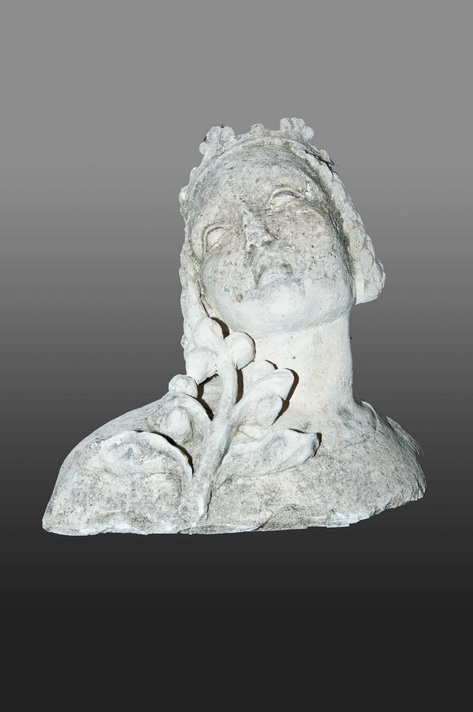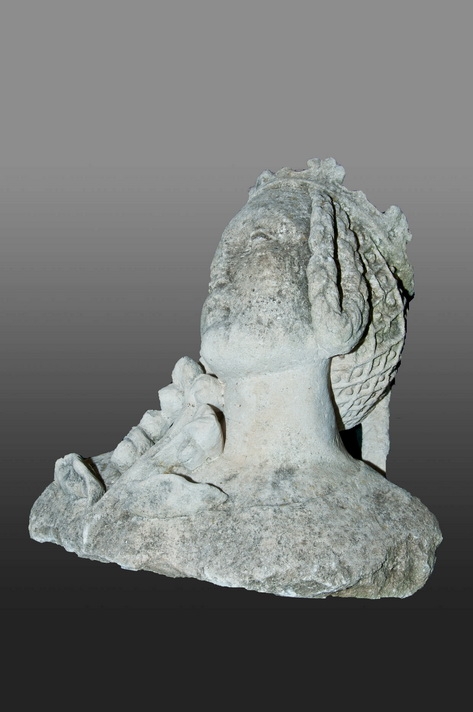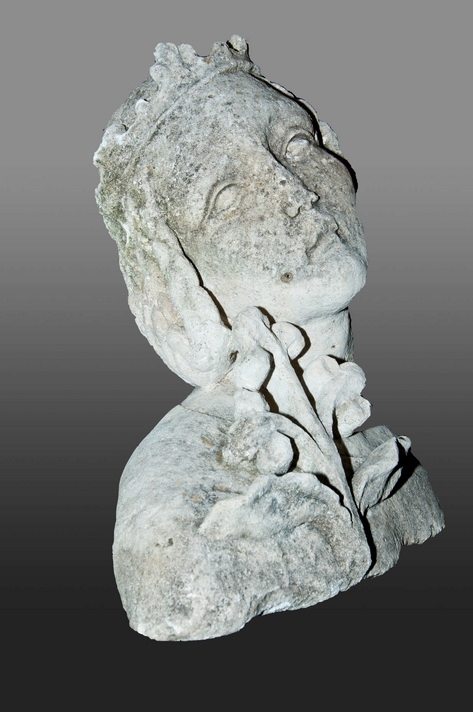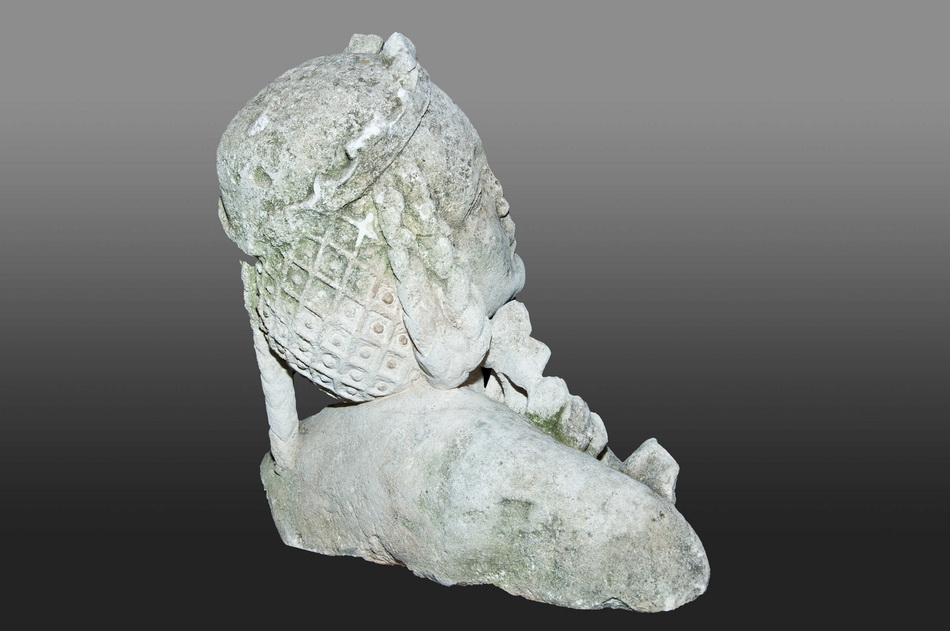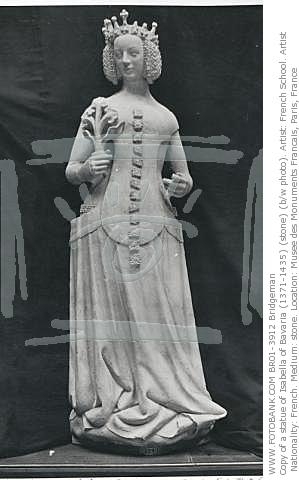Limestone sculpture of Isabella of Bavaria
Circa 1390
France
W 17" × H 16" × D 9"
Stock # Marh145
SOLD
The role of Isabeau of Bavaria in French history has caused her to be the subject of barbed attacks from the pens of a variety of historians through the centuries. These attacks stem from skewed interpretations of her important role in the negotiations with England that resulted in the Treaty of Troyes (1420) and from simple acceptance of the rumors of her marital infidelity that were started in Paris 1422-1429 during the English occupation.[1] These rumors were started in an attempt to throw doubt on the paternity of Isabeau's son Charles VII, who was then fighting to expel the English and to be accepted throughout the kingdom as the rightful king of France. The rumors found expression in a poem called the Pastoralet, that was circulated at the time.
Isabeau was put in the position of having to assume an unusually powerful role in government to fill the gap left by her husband's frequent bouts of mental illness. Several months after the onset of the king's illness, his doctors recommended a program of amusements for him, and this inspired a member of the court to suggest that the king surprise the queen and the other ladies as a member of a group of courtiers disguised as wild men who were to make a sudden appearance at the ball given to celebrate the marriage of one of the queen's ladies-in-waiting. It was at this festivity, the Bal des Ardents, or 'Ball of the Burning Men', that Isabeau witnessed the horrible accident with the torch that could have cost the king his life.
Isabeau with her ladies-in-waiting. Isabeau was thrust to the forefront of the political arena not only due to her husband's mental illness, which is now believed to have been schizophrenia, but also because of the rivalries that developed between various members of the royal family. Since the king often did not recognize her during his psychotic episodes and was upset by her presence, it was eventually deemed advisable to provide him with a mistress during those times, Odette de Champdivers. Odette probably assumed her role by 1405,[2] but during his remissions the king still had relations with Isabeau, whose last pregnancy was in 1407. On 11 October 1418 a letter of the king ordered that Isabeau be given 2,000 livres tournois to help her buy back a bejeweled clasp (fermail) that Charles had given her on their wedding day.[3] It had been taken and sold without her permission, apparently during the time she was in exile in Tours in 1417. It is not clear, however, that the royal letter in question was actually issued by the king himself.[4]
